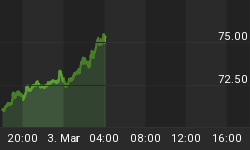The announcement of a massive stimulus package of almost $600 billion shows that China means business not just in reviving, but also in rejuvenating its economy.
As both America and China confront the prospect of a global depression, both countries have chosen to fend off potential unrest with liberal government spending. But the Chinese move is bolder and more likely to succeed.
The most remarkable aspect of the Chinese stimulus plan is its enormous size. Despite the massive publicity surrounding its formidable growth rate, the Chinese economy is still 'only' one-fifth the size of America's. Relative to its economy, China's stimulus package would be the equivalent of a $3 trillion package in America.
The Bush-Greenspan asset booms were so extreme, and the resulting deleveraging so massive, that government actions in multiples of trillions of dollars are needed to make any meaningful impact in slowing the asset bust.
Based on this yardstick we can see that the differences in the Chinese and American approaches could not be more dramatic. The divergence bodes ill for the future.
The impact equivalent of China's package of $3 trillion is 17.4 times that of America's $172 billion. Of course, this does not include the $700 billion Bush TARP that was agreed to by Congress last month. But then, China did not have a financial system which needed a massive taxpayer bailout.
Although some Chinese investors may have been taken in by smart Wall Street salesmen peddling mortgage backed securities, the scale of these investments does not present systemic risk to China's financial markets.
China has announced that the lion's share of its stimulus spending will focus on modernizing the infrastructure of its country in preparation for challenging America as a super power in just a few more years.
In contrast, the focus of the Bush Administration plan is to boost consumer spending. America's decaying infrastructure has been virtually ignored. This will render America's economy ever less competitive in an increasingly competitive world.
Even the follow-up packages in America are likely to throw increasing amounts of taxpayer money at highly leveraged banks and failed corporations, like General Motors.
When the world recovers from the looming depression, China will emerge greatly strengthened and as a far more serious challenger for super power status.
Since the ancient times of Babylon, super power status also has been reflected in any 'uber' nation's currency. While China's economy is dominated by roaring manufacturing and infrastructure development, America's economy is comprised of 72 percent by consumers. In reality, America is consuming more than it produces and is eroding its national wealth at an alarming rate.
In contrast, emerging nations like Brazil, Russia, India, and China (the so-called BRIC nations) are producing far more than they consume and are creating real wealth in the process. It follows that BRIC corporations and even their currencies should be attractive long-term investments, relative to those of the United States.
On November 15th, the G-20 leaders meet in Washington to discuss threats faced by the world economy. Today, there is decreasing faith in paper currency. The G-20 leaders must address this crucial problem. It may well be that they seize this opportunity to establish an international currency, under the auspices of the IMF, but linked to Gold.
Should they fail, a resurgent China can be expected to veto any subsequent attempts in an effort to replace the U.S. dollar with its own as the world's key 'anchor' or reserve currency. Such a change in reserve status will confer on China a number of competitive advantages previously reserved for America.
Unlike America, China is unlikely to borrow to finance its stimulus package. Indeed, it is likely to spend its own national earnings rather than continue to invest in U.S. Treasuries.
Worse still, China might even begin to sell part of its massive holdings of some $1 Trillion of U.S. Treasuries. This will put upward pressure on U.S. interest rates, tending to drive a recession into a depression.
However it is financed, China's stimulus package is decidedly bad news for America.
For a more in depth analysis of our financial problems and the inherent dangers they pose for the U.S. economy and U.S. dollar, read Peter Schiff's new book For an updated look at his investment strategy order a copy of his just released book "The Little Book of Bull Moves in Bear Markets." Click here to order your copy now.
For a look back at how Peter predicted our current problems read the 2007 bestseller "Crash Proof: How to Profit from the Coming Economic Collapse." Click here to order a copy today.
More importantly, don't wait for reality to set in. Protect your wealth and preserve your purchasing power before it's too late. Discover the best way to buy gold at www.goldyoucanfold.com. Download Euro Pacific's free Special Report, "The Powerful Case for Investing in Foreign Securities" at www.researchreportone.com. Subscribe to our free, on-line investment newsletter, "The Global Investor" at http://www.europac.net/newsletter/newsletter.asp.
















